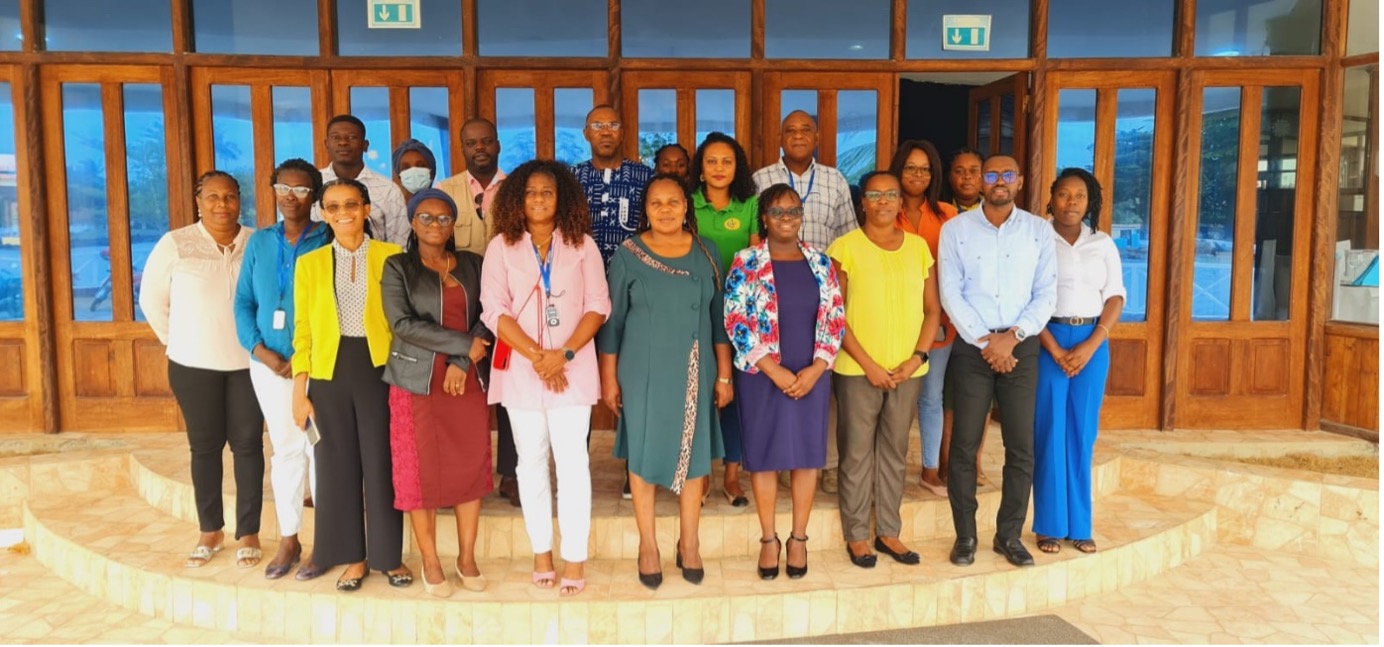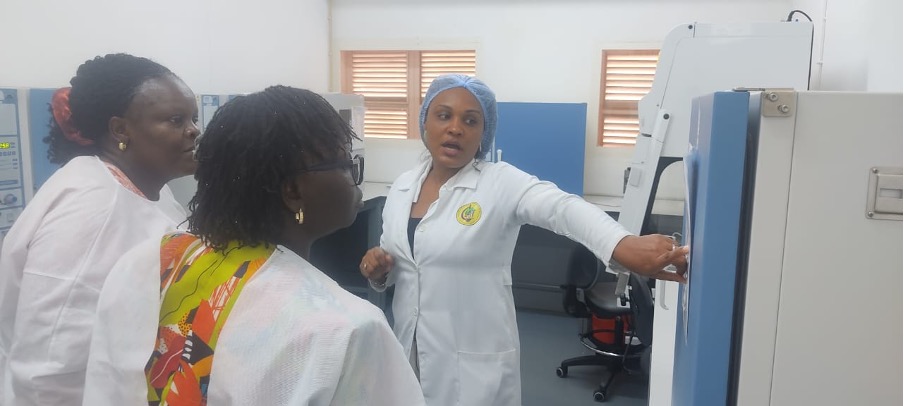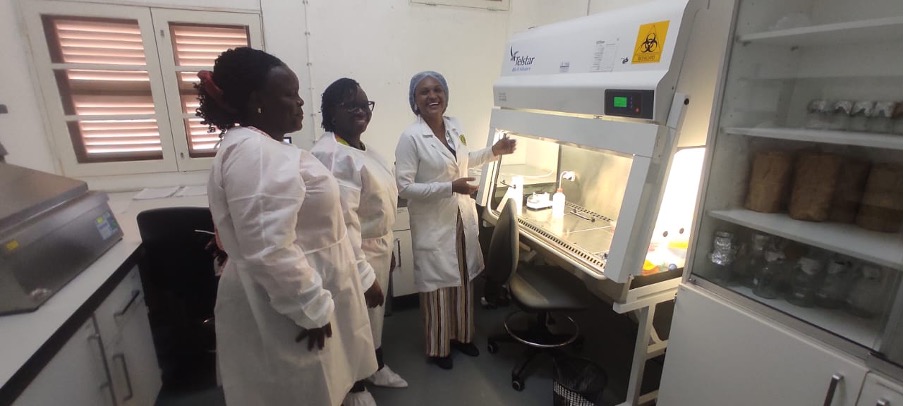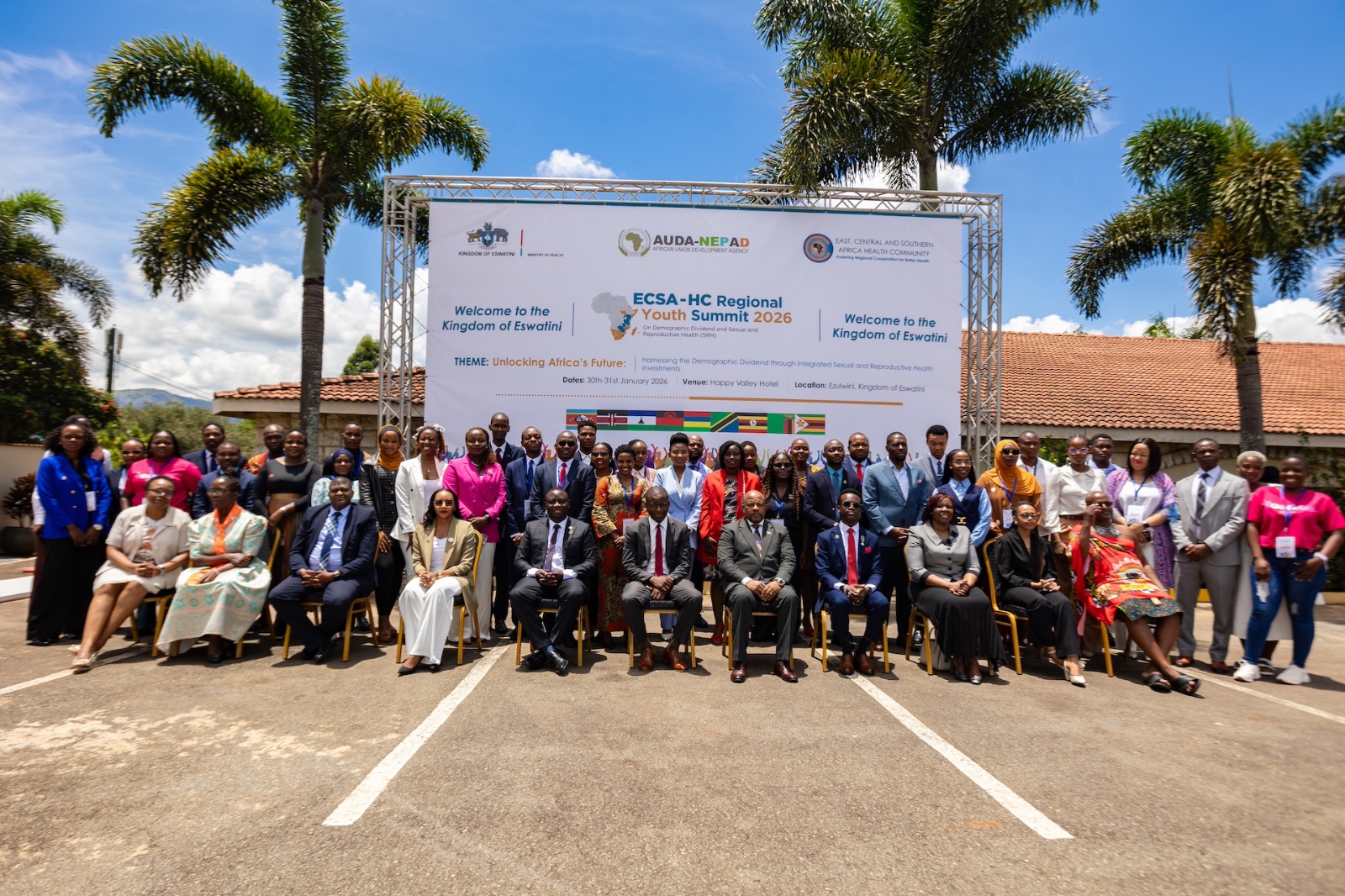ECSA-HC has successfully concluded the 76th Health Ministers Conference (3–5 Feb 2026) in Ezulwini, Kingdom…
Strengthening Antimicrobial Resistance Surveillance and Building Capacity for Antimicrobial Stewardship in São Tomé and Príncipe

Antimicrobial resistance (AMR) is a formidable global health threat, challenging the efficacy of life-saving drugs and escalating healthcare costs. São Tomé and Príncipe, a small island nation in Central Africa, faces significant challenges in combating AMR due to limited resources and infrastructure. Recognizing these challenges, ECSA-HC, with support from the World Bank’s Health Emergency Preparedness Response and Resilience Project, has stepped in to bolster the nation’s capacity to address AMR through surveillance and stewardship programs.
 From July 14th to 26th, 2024, a dedicated team conducted a mission to São Tomé and Príncipe aimed at strengthening the national AMR surveillance system. The team collaborated with local stakeholders to adapt regional and global guidance for implementing an integrated AMR surveillance strategy, rooted in the One Health approach. This approach considers the interconnectedness of human, animal, and environmental health, ensuring comprehensive monitoring and action against AMR.
From July 14th to 26th, 2024, a dedicated team conducted a mission to São Tomé and Príncipe aimed at strengthening the national AMR surveillance system. The team collaborated with local stakeholders to adapt regional and global guidance for implementing an integrated AMR surveillance strategy, rooted in the One Health approach. This approach considers the interconnectedness of human, animal, and environmental health, ensuring comprehensive monitoring and action against AMR.
Another key focus of the mission was to establish Antimicrobial Stewardship Programs (AMS) in healthcare settings across São Tomé and Príncipe. Through peer-to-peer learning, experiences from Tanzania and Kenya were shared, offering valuable insights into building effective AMS programs. The mission included a SWOT analysis using the WHO AMS National Level Assessment Checklist, which provided a detailed understanding of the current capabilities, challenges, and opportunities for São Tomé and Príncipe.
 The mission wasn’t confined to boardrooms and workshops. The ECSA-HC technical team, along with local health authorities, visited crucial health facilities, including the National TB Reference Laboratory and the Plant Health Research and Training Institute (Centro de Investigação Agronómica e Tecnológica – CIAT) in São Tomé. These visits were instrumental in assessing the microbiology capacity and discussing ways to strengthen laboratory infrastructure, a critical component of effective AMR surveillance.
The mission wasn’t confined to boardrooms and workshops. The ECSA-HC technical team, along with local health authorities, visited crucial health facilities, including the National TB Reference Laboratory and the Plant Health Research and Training Institute (Centro de Investigação Agronómica e Tecnológica – CIAT) in São Tomé. These visits were instrumental in assessing the microbiology capacity and discussing ways to strengthen laboratory infrastructure, a critical component of effective AMR surveillance.
The outcomes of this mission are expected to significantly enhance the capacity of São Tomé and Príncipe to tackle AMR, ensuring that the nation is better equipped to protect its population from the growing threat of drug-resistant infections. By adopting and implementing robust surveillance systems and stewardship programs, São Tomé and Príncipe is setting the stage for a healthier future.


